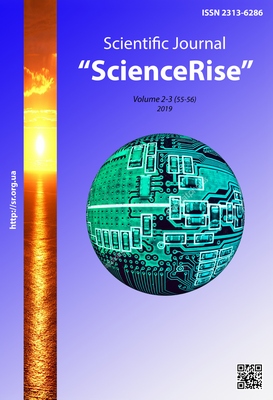Ways of transformation of the system of combating economic crimes in Ukraine with regard to the experience of the European union countries
DOI:
https://doi.org/10.15587/2313-8416.2019.163108Keywords:
economic crimes, corporate fraud, financial investigations service, financial investigation, forensicAbstract
The necessity of forming a new system of combating economic crimes in Ukraine, which unites one purpose, timely detection and fair punishment of violators of law, as law enforcement bodies, state authorities and private entities, is investigated. The foreign experience, which it is expedient to use in the process of transformation of the method of conducting financial investigations of economic crimes in Ukraine, is analyzed. The prospects for the establishment and operation of the Financial Investigations Service in Ukraine, as well as the use of forensic as a modern method of conducting financial investigations of corporate fraud are outlined
References
Dementʹyeva, Е. Е. (1996). Problemy bor'by s ekonomicheskoy prestupnost'yu v zarubezhnykh stranakh [Problems of combating economic crime in foreign countries]. Moscow, 30.
Kondrat'yeva, Е. А., Goryunov, А. R. (2003). K voprosu o vyrabotke nauchnogo opredeleniya finansovykh rassledovaniy [On the issue of developing a scientific definition of financial investigations]. Bulletin of the Financial Academy, 1 (25), 20–23.
Pimenov, N. A. (2003). Finansovyye rassledovaniya: osnovnyye podkhody [Financial Investigations: Basic Approaches]. Bulletin of the Financial Academy, 1 (25), 25–32.
Lepskyi, S. I. (2014). Zarubizhnyy dosvid vykorystannya finansovykh rozsliduvanʹ u pravookhoronniy diyalʹnosti [Foreign experience in using financial
investigations in law enforcement]. Criminal law and criminalistics, 2, 189–195.
Chernyavskyi, S. S., Korystin, O. E., Nekrasov, V. A. (2017). Finansovi rozsliduvannya u sferi protydiyi lehalizatsiyi zlochynnykh dokhodiv v Ukrayini [Financial investigations in the area of combating the legalization of criminal incomes in Ukraine]. Kyiv: Nat. acad. inside affairs, 164.
Nipialidi, O. (2017). Perspektyvy stvorennia sluzhby finansovykh rozsliduvan: ukrainski realii ta zarubizhnyi dosvid [Prospects for the establishment of a financial investigation service: Ukrainian realities and foreign experience]. Actual problems of law, 3 (11), 165–170.
Panchenko, P. N. (1990). Crimes impinging on the economic system. Problems of combating crimes in the sphere of economics: a collection of scientific papers. Kyiv, 4.
Yakovlev, A. M. (1988). Sotsiologiya ekonomicheskoy prestupnosti [Sociology of economic crime]. Moscow, 50–52.
Smetanko, O. V. (2015). Sutnistʹ vnutrishnʹoho audytu shakhraystva v systemi korporatyvnoho upravlinnya aktsionernoho tovarystva [The essence of internal audit fraud in the system corporate governance of a joint-stock company]. Economics, finance, management: topical issues of science and practice, 3, 22–30.
Tytarenko, O. (2008). Kryminolohichna kharakterystyka ta protydiya ekonomichnym zlochynam u vuhilʹniy promyslovosti [Criminological characteristics and counteraction to economic crimes in the coal industry]. Dnipropetrovsk: Dnipropetrovsk state Un. of Internal Affairs, 196.
Klimchak, M. (2018). Vsesvitnye doslidzhennya ekonomichnykh zlochyniv ta shakhraystva 2018 roku: rezulʹtaty opytuvannya ukrayinsʹkykh orhanizatsiy [Worldwide Survey of Economic Crimes and Fraud in 2018: Results of a Survey of Ukrainian organizations]. Available at: https://www.pwc.com/ua/uk/survey/2018/pwc-gecs-2018-ukr.pdf
Effective Inter-Agency Co-operation in Fighting Tax Crimes and Other Financial Crimes (2013). OECD, 380. Available at: http://www.oecd.org/ctp/crime/effectiveinter-agencyco-operationinfightingtaxcrimesandotherfinancialcrimes.htm
Pro Sluzhbu finansovykh rozsliduvanʹ Ukrayiny (finansovu politsiyu) (2013). Proyekt Zakon Ukrai'ny 12.03.2013.
Bezzub, I. Chy polehshytʹ zhyttya ukrayinsʹkomu biznesovi «Finansova politsiya»? [Will the life of the Ukrainian business "Financial Police" make life
easier?]. Available at: http://nbuviap.gov.ua/index.php?option=com_content&view=article&id=2313:reforma-podatkovoji-sistemi&catid=8&Itemid=350
Konstytutsiya Ukrayiny (1996). No. 254к/96-ВР. 28.06.1996. Verhovna Rada Ukrai'ny. Available at: https://zakon.rada.gov.ua/laws/show/254%D0%BA/96-%D0%B2%D1%80
Pro osnovy zapobihannya ta borotʹby z ekonomichnymy ravoporushennyamy (2014). Proyekt Zakon Ukrai'ny No. 1655-VII. 02.09.2014. Verhovna Rada Ukrai'ny. Available at: http://w1.c1.rada.gov.ua/pls/zweb2/webproc4_2?pf3516=4449%D0%B0&skl=8
Voloshchuk, R. E. (2015). Sluzhba finansovykh rozsliduvan v Ukraini: neobkhidnist stvorennia ta orhanizatsiini modnoi funktsionuvannia [Financial Intelligence Service in Ukraine: the need for creation and organizational modal functioning]. Bulletin of the Khmelnytsky National University, 1, 168–173.
Kovbel, A. (2018). Yak forenzyk dopomahaye vlasnykam pobuduvaty prozoryy ta efektyvnyy biznes [How to forensic helps the owners to build a transparent and efficient business]. Available at: https://landlord.ua/news/dymka/yak-forenzik-dopomagaye-vlasnikam-pobuduvati-prozoriy-ta-efektivniy-biznes/
Huber, Wm. D. (2014). Forensic accounting: an anglo-american comparison ‒ Forensic accounting in the U.S.A. Journal of forensic & investigative ac-counting, 6 (3), 154–170.
McMullen, D. A., Sanchez, M. H. (2010). A preliminary investigation of the necessary skills, education requirements, and training requirements for forensic accountants. Journal of forensic& investigative accounting, 2 (2), 30–48.
Downloads
Published
Issue
Section
License
Copyright (c) 2019 Deniza Dolbneva

This work is licensed under a Creative Commons Attribution 4.0 International License.
Our journal abides by the Creative Commons CC BY copyright rights and permissions for open access journals.
Authors, who are published in this journal, agree to the following conditions:
1. The authors reserve the right to authorship of the work and pass the first publication right of this work to the journal under the terms of a Creative Commons CC BY, which allows others to freely distribute the published research with the obligatory reference to the authors of the original work and the first publication of the work in this journal.
2. The authors have the right to conclude separate supplement agreements that relate to non-exclusive work distribution in the form in which it has been published by the journal (for example, to upload the work to the online storage of the journal or publish it as part of a monograph), provided that the reference to the first publication of the work in this journal is included.

